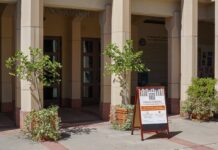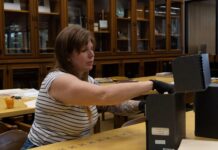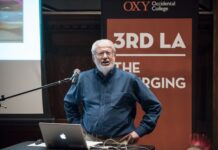Author: Emma Lodes
Spanning eight South American countries and 2.6 million square miles, the Amazon Rainforest has the world’s greatest biodiversity and holds the world’s largest collection of plant and animal species, according to the World Wildlife Fund. Accounting for 10 percent of the world’s carbon storage, Amazonian trees also keep the atmosphere clean, making the rainforest crucial to global ecology.
Deep in the Amazon in Eastern Ecuador lies the Yasuni National Park, a slice of rainforest under threat that is arguably the most biodiverse slice of the world. For six years, Ecuador attempted to quell oil drilling and deforestation through an ambitious plan by asking the international community to donate money equaling half of the sacrificed oil revenue. After funds from other countries fell far short of this goal, the plan finally crashed and burned a few weeks ago. The Ecuadorian government’s decision to drill for oil deep in the park threatens the park’s biological and cultural diversity and health, as well as the health of our atmosphere as a whole. The international community must support Ecuadorian citizens in their fight to preserve the health of the Amazon by lobbying to reverse the government’s decision and pushing a referendum through.
Ecuador embarked on an ambitious, futuristic quest to preserve the Yasuni National Park in 2007, calling the plan the Yasuni-ITT initiative. The initiative asked the international community to donate $3.6 billion in order to leave the ITT oil fields untapped. The plan would have protected the native tribes living in the area, prevented 400 million tons of carbon from entering the atmosphere and accelerating global warming and protected the incredible biodiversity of the area.
This idea models the kind of out-of-the-box solutions the world needs in order to deal with environmental problems while working with our global economic system. But the world failed to take the cue. In 2008, Ecuador defaulted on its international loans, leading to skeptical donors. After six years the international community donated less than one percent of the requested amount, demonstrating world leaders’ distrust of Ecuador, and more importantly, their inability to recognize and take action against the severity of deforestation and climate change.
The two massive oil blocks under threat, “Block 31” and the “ITT Block,” lie in the northeast corner of the Yasuni National Park, which together account for 846 million barrels of oil and 20 percent of Ecuador’s oil reserves. For years, Ecuador has been at the forefront of environmental protection and conservation and its citizens consistently support the rights of the natural environment. In 2008, Ecuador created a new constitution that protects the rights of nature and forbids oil drilling in protected areas and should thus be protecting the Yasuni National Park. However, the constitution allows oil drilling in protected places if it is of national importance. So after a vote in Congress that favored the ability to drill in the Yasuni due to national interest, Ecuadorian President Rafael Correa got license to run with his back-up plan: drill, baby, drill.
Correa announced that he was going to abandon the plan to stop oil drilling via international donations on Aug. 15 and blamed the international community for his decision. Two weeks ago on Oct. 3, the Ecuadorian Congress approved the plan to drill in the Yasuni National Park, both in the ITT Block and Block 31. Correa’s decision to drill came from the need to fund national social programs, decrease poverty and repay national debt. But as half of the country’s revenue already comes from oil exports, expanding Ecuador’s drilling sites would further its dependence on oil and lead to an unsustainable economy.
Luckily, a wave of protests followed Correa’s disastrous announcement and when environmental activists attempted to create a national referendum – the only hope to save the rainforest. Ecuador’s Constitutional Court approved the referendum against the decision, making room for the first step towards reversing Correa’s destructive decision. In order to push the referendum to the next level, activists must collect signatures from five percent of Ecuador’s registered voters.
Ecuadorians must mobilize to pass this referendum. The international donors must realize their critical error and reverse Correa’s destructive decision by financially supporting Ecuador’s environmental activists. The Amazon is a valuable resource not only for Ecuador but for the entire world. Although the drilling itself is said to affect a minimal portion of the forest, the logging, creation of roads and clear-cutting for workers’ settlements will ensure that a larger fraction of the forest is cut down. Deforestation and climate change due to increased release of greenhouse gases will cause the Amazon to continue to shrink until its trees can no longer capture the excess carbon we release. If the world’s citizens do not realize the gravity of this situation, Ecuador’s failure will harm future out-of-the-box conservation strategies, propagate future exploitation of natural resources and eventually come back to haunt the whole planet.
Emma Lodes is a sophomore DWA major. She can be reached at lodes@oxy.edu or on Twitter at @WklyELodes.
This article has been archived, for more requests please contact us via the support system.
![]()


































